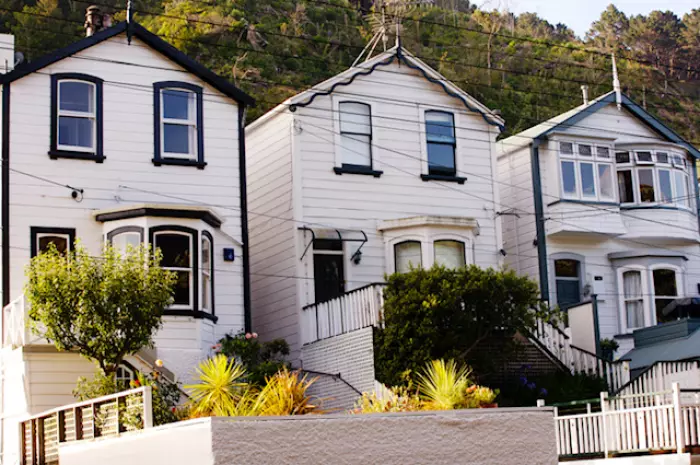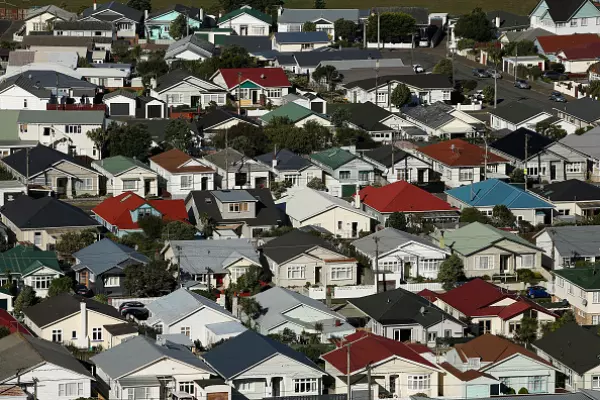Three polls of landlords since the government removed interest deductibility on residential properties on March 23 show more than 74% expect to raise rents in response.
While respondents to all three surveys were self-selecting, all were specifically targeted at property investors.
The latest survey by the New Zealand Property Investors' Federation shows more than 90% of 1,719 respondents said they will be affected by the new policy and that 76.8% said the main way they will cope is to raise rents.
A further 8.9% said they might raise rents.
The federation's survey was conducted through Survey Monkey and 73% of respondents were members. On average, they plan to increase rents by between $21 and $30 a week.
The results were similar to former BNZ chief economist Tony Alexander's survey of readers of his newsletters.
His survey had more than 3,600 responses and 74% said they planned to raise rents.
Another Alexander survey of real estate agents that had 369 respondents found a net 41% reported seeing fewer investors, the weakest since this survey began in May last year.
However, a net 56% in that survey expect house prices will continue to rise.
The third survey by publisher Philip Macalister of readers of New Zealand Property Investor magazine and landlords.co.nz garnered more than 1,200 responses, and 74% said they would raise rents.
Macalister's survey was conducted in the days immediately following the March 23 announcement.
Extra tax
In the NZPIF survey, whose members own 5.3 properties each on average, respondents said they will be liable to pay an extra $3,140 a year in tax per property, assuming mortgage interest rates don't increase.
Those who bought their rental property in the last two years were most affected, expecting to pay $4,524 more in tax per property.
"While investors are not comfortable with increasing rental prices, respondents feel that this is their only real option for coping with the higher taxes caused by removing interest deductibility," NZPIF said.
"With 70% of them not currently charging market-rate rental prices, there appears to be room for rental price increases," it said.
"This calls into question a commonly held belief that rental property owners will always charge whatever they can get for a rental property. It also demonstrates that rental property owners are not as greedy as often portrayed by some opinion writers and online commentators."
Unlike NZPIF members, most landlords own one or two properties.
Under the new rules, interest deductibility still applies to all other business activities but ceased for investors acquiring a residential property after March 27. Deductibility will be phased out for all other residential property investors over four years from Oct 1.
Not many sellers
NZPIF's survey found only 21% of respondents would consider selling some or all their rental properties, a similar percentage to Alexander's 23% but Macalister's found only 15.4% said they would sell, possibly reflecting the survey's timing so close after the announcement.
While the government has been calling property investors "speculators," the NZPIF survey found its respondents had an average of 63% equity in their properties and the longer they owned their properties, the higher their equity.
NZPIF said the vast majority of respondents were upset by the government's policy changes and "many were upset not only by the government's actions but also by the fact that there were being portrayed as speculators who used loopholes to avoid paying their fair share of tax".
While the Labour government may have calculated that landlords aren't Labour voters, Alexander's survey found 80% of his respondents agreed with the government's goal of improving access to homeownership for young people, 74% supported moves to improve tenant conditions and 68% supported the goal of producing a more sustainable rate of increase in house prices.
NZPIF's survey found 19.5% said they won't buy more rental properties while Alexander's found 32% plan not to buy further properties.
Few investors in any of the surveys were troubled by the government doubling the "brightline" test to 10 years – if investors sell less than 10 years after buying a property they have to pay tax on any capital gain.
In NZPIF's survey, 63% said they wouldn't be affected but the federation noted that it increases the risk for a rental property owner in the event of a serious life event, such as a marriage break-up, job loss, illness or death, that meant the property must be sold.















